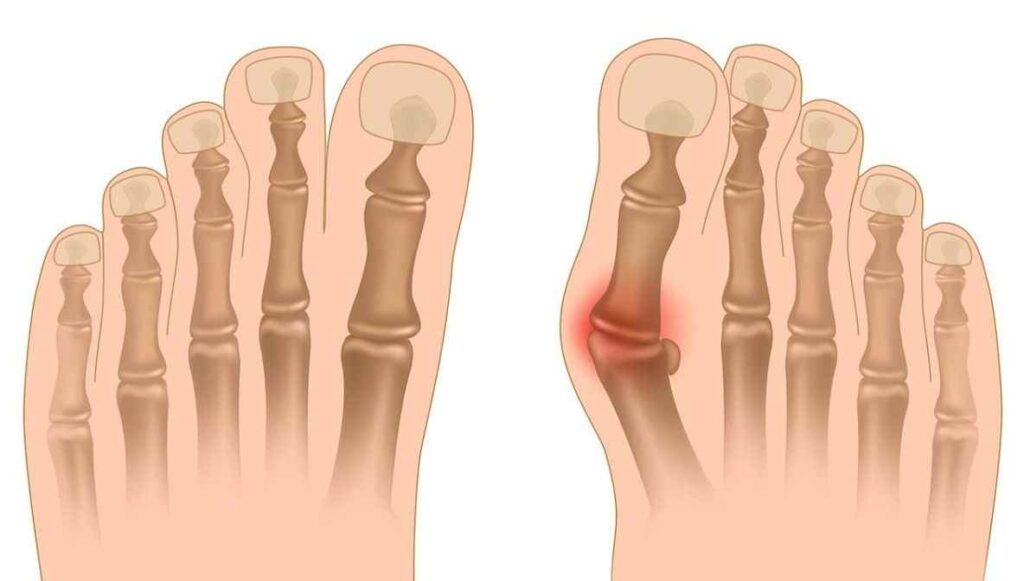
What happens to your body if you don’t get enough sun
Your body begins producing vitamin D, also known as the sunshine vitamin when you expose your skin to the sun. Vitamin D plays a very important role in the proper functioning of many organs and tissues of the body.
According to a recent study, nearly 40% of Americans are deficient in vitamin D. People who avoid or don’t get enough sun exposure may suffer various negative consequences.
We have collected the most common symptoms and manifestations of a “sunshine vitamin” deficiency.
Weak bones

Calcium and Vitamin D have long been recognized as important and essential nutrients for bone health and mineralization. The absorption of calcium in the small intestine is done with the help of vitamin D. Deficiency of the “sunshine vitamin” leads to decreased absorption of calcium and, as a result, weakened bone structure.
People who do not get enough sunlight suffer from bone pain, muscle weakness, rickets, osteoporosis and osteoporosis. It is considered very important to maintain an adequate dose of Vitamin D in your body. Sunlight, a healthy diet, and nutritional supplements are major sources of vitamin D.
Foot deformities

Since vitamin D facilitates the absorption of phosphate and calcium through digestion, it may be very helpful in dealing with issues related to the bones. The lack of calcium in the bones leads to changes in the structure of the bones and thus their deformation.
Increasing their vitamin D intake in the form of supplements or by exposing yourself to sunlight can help maintain an adequate level of calcium in their bones and cells. In order to prevent or control chronic foot pain, especially those related to conditions such as osteoporosis, plantar fasciitis, arthritis, and other arthritis and tendons. You can use vitamin D.
Colorectal cancer

Studies have shown that too little sun exposure and vitamin D deficiency in cells can lead to colorectal cancer. Mostly Vitamin D levels determine the survival and growth of cancer cells. Adequate vitamin D levels are linked to improved overall survival in colon cancer patients. Additional clinical trials are necessary to evaluate whether vitamin D supplementation can help prevent or reduce the risk of colon and rectal cancer.
Find out if your vitamin D levels are too low with a blood test. The optimum level is above 30 nanograms per milliliter.
Depression

Modern society is all about office jobs and computers and you can’t surprise anyone with hours late at the office. People by nature tend to spend more time in front of the computer than on a walk or just spending time outside. Even when we have time to rest, we watch TV shows or play video games.
As it turns out in the past, the sun plays a very important role in drawing a smile on your face because the lack of light is a true mood killer. The more we lock ourselves up within 4 walls, the more sad we become. Spend more time outside – you’ll find a lot of fun things there so you’ll still be healthy. You can also purchase a home lighting box to maintain your vitamin D level during the dark winter months.
Skin problems

Since psoriasis is an immune system imbalance, vitamin D can alter the balance in a positive way. Exposure to UVB rays can be an effective way to treat psoriasis, acne, and other skin problems. Keeping a healthy dose of Vitamin D in your life can make a big difference to the health of your skin.
You don’t need to sunbathe to get enough vitamin D. However, be careful and try not to overexpose yourself to UV rays as there is an increased risk of developing skin cancer among psoriasis patients.
overweight

Muscle weakness, bone pain, and deformity can contribute to weight gain by making physical activity difficult and burning calories. Vitamin D and the hormone leptin work together to control body weight. Also, leptin, produced in fat cells, sends signals to the brain to let a person know that they are full. Vitamin D helps these signals get to the brain, and a deficiency in this vitamin may break the cycle. As a result, you do not feel full and overeat.
When you are exposed to the sun and by maintaining a healthy diet, you can get vitamin D. Make sure the food contains fish (swordfish, tuna, and salmon); Egg yolks and fortified foods like milk, wholegrain bread, unflavored yogurt, orange juice, and probiotic granola.
Cognitive impairment

Recent studies have shown that cognitive dysfunction and dementia are now on the long list of conditions caused by vitamin D deficiency. Because its receptors are widespread in brain tissue, low levels of it can increase the risk of cognitive decline among the elderly.
There was a study in 2015, involving more than 60,000 individuals, that helped determine that people who live in northern latitudes have a significantly increased risk of developing dementia compared to those who live in southern latitudes.
Warnings for treating vitamin D deficiency

There are three main sources of Vitamin D: exposure to solar UV rays, a healthy diet, and nutritional supplements. However, in order to maintain good health, there are certain things that you should keep in mind. The real danger of overexposure to the sun is skin cancer. Follow a complex sun protection plan: stay in the shade, use a waterproof sunscreen of SPF 30 or higher, and wear protective clothing.
If you choose a nutritional supplement, remember that the dosage is based on blood tests and your doctor’s prescriptions. Although a vitamin D level of 30 ng / mL is usually considered adequate, do not risk your health before taking any supplement and consult a specialist. Excessive amounts of vitamin D can accumulate in cells and lead to negative consequences.
Do you live in a city where there is little sunshine? So how do you deal with the lack of sunny days?
